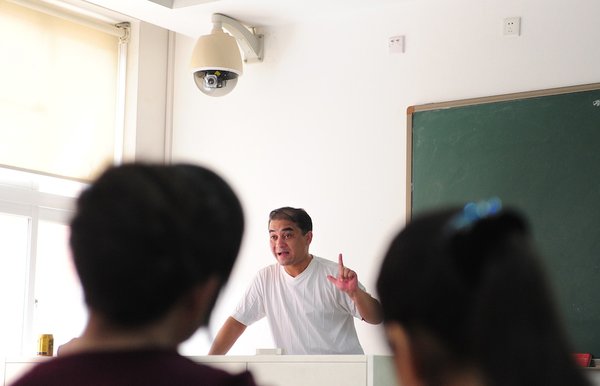With a verdict against Uyghur scholar Ilham Tohti expected on Tuesday following his trial for alleged separatism last week, Ian Johnson presents several prominent Chinese intellectuals’ views on his case. Most stress Ilham’s public rejection of Xinjiang independence, which prosecutors reportedly claimed is evidence of his hidden separatism. Those interviewed are scholar Wang Lixiong, Tibetan writer Woeser, rights lawyer Teng Biao, and activist Hu Jia. From The New York Review of Books:
Why was he arrested?
Wang: It is really strange. It’s something I can’t understand. Whenever police asked me, I’d tell them that Ilham is a very important person. In the future, if there’s to be a solution, he’s important. The government might not be able to control the situation and what they’d need are civil society actors who can play a role. I think that Ilham is that kind of a person. In fact, he’s the only Uighur who as a public intellectual can stand up and speak out. At least as far as I know, he’s the only one who can express himself so clearly, and someone who doesn’t want independence, who wants to live in China and say he’s a Zhongguoren [Chinese person] but wants Xinjiang to have more autonomy. By contrast, the Uighurs abroad, basically all of them want independence.
[…] His criticism of China’s Uighur policies did not get him arrested in the past.
[…] Wang: We all thought he wouldn’t be in trouble. But the only conclusion is dark: it’s that they don’t want moderate Uighurs. Because if you have moderate Uighurs, then why aren’t you talking to them? So they wanted to get rid of him and then you can say to the West that there are no moderates and we’re fighting terrorists. [Source]
Wang also clarifies that Uyghurs’ second names are patronymics, not surnames: “His real name is just Ilham […] if you call him Tohti or Mr. Tohti, you’re addressing his father!” See more from Johnson’s conversation with Wang and Woeser, and more on Xinjiang, including news of explosions that killed at least two on Sunday and China’s sweeping security crackdown, via CDT.








